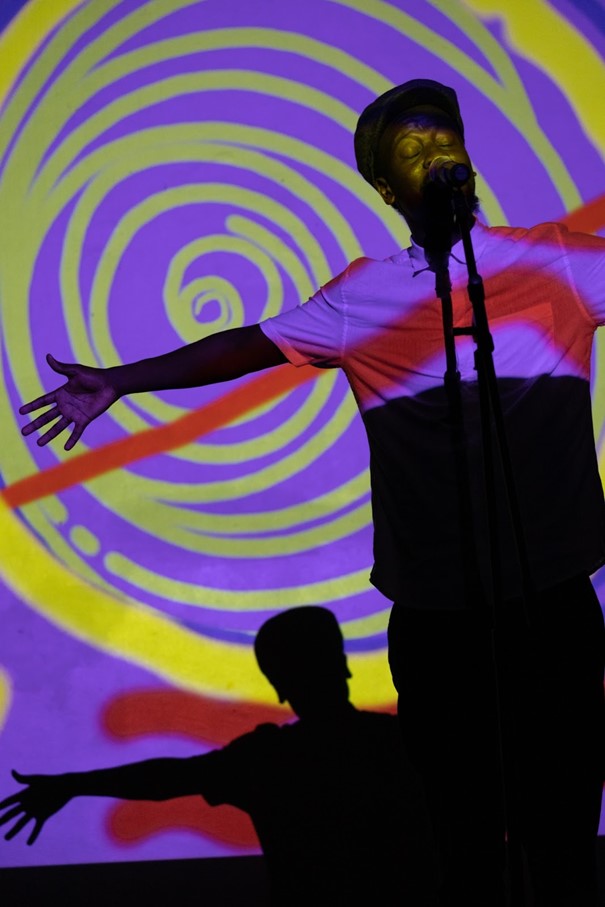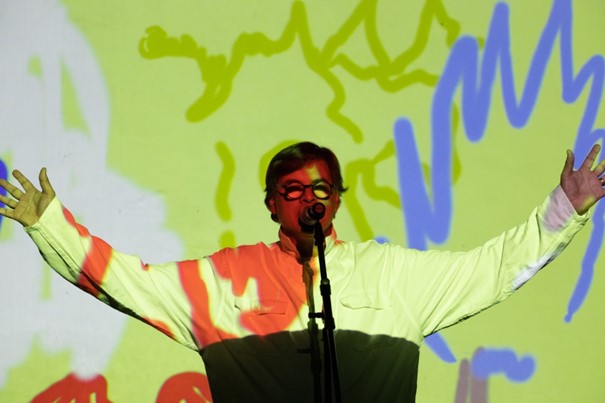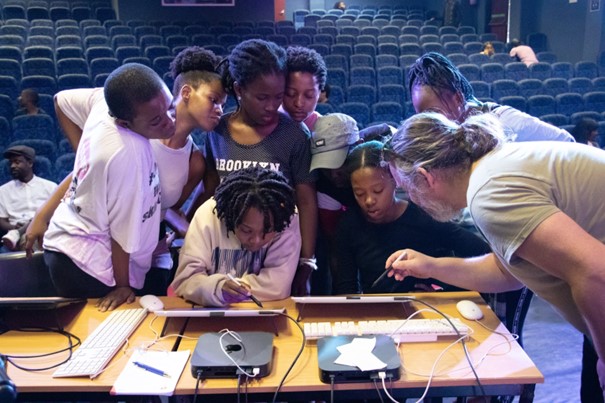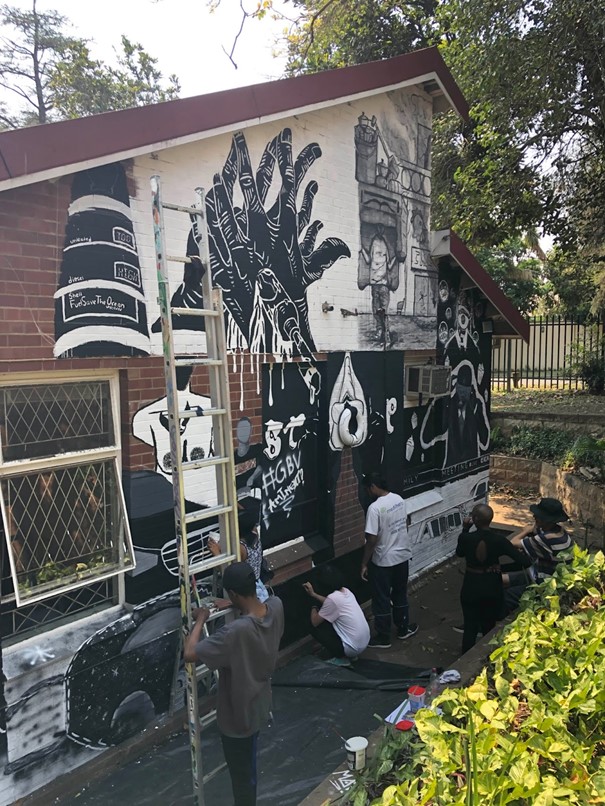

-
EVENTS / PROJECTS / PUBLICATIONS
-
Alumni

-
Fast registration:

-
Fast registration:
- Home
- Drawing Resilient Futures: a study trip to Durban, South Africa
Drawing Resilient Futures: a study trip to Durban, South Africa
From 9 until 17 October 2022 our colleagues Janna Beck, Wouter Steel & Philip Meersman went to Durban, South Africa to kick-start the international VLIR-UOS project Drawing Resilient Futures. They set up a collaborative drawing & poetry performance/workshop during Poetry Africa 2022 and conducted research in the context of the research project &co.
They had a great experience and share their story with us below!
The collaborative drawing & poetry performance/workshop
The week started with the build-up of the performance/workshop in the K-CAP community center. This initiative came from the Community Cultural Center (CCA) of the University of Kwazulu-Natal (UKZN) and was possible in the frame of the outreach program there. The location was specifically chosen because of its minimal technical support and big group of enthusiastic art students who actively follow classes or work in K-CAP.
During Poetry Africa, a lot of workshops and community outreach programs are organized in various parts of the country, each of which is sent a small group of poets. They try to find the ideal match for each profile and for us that led to a cooperation with the South African performance poet Modise Sekgothe, who was very interested in trying out different forms of cocreation. Our final creation was presented as a live interactive impro slam poetry session in combination with live digital graffiti. The public could shout out words during the performance that Philip could in his turn use to improvise, but that were also used to start a dialogue and test the technical tools available. Modise followed Philip on the stage with some of his existing work, which was supported visually with drawings by Wouter, Janna, Modise and Chico Nhadavele.


After these performances, the youngsters of the township were invited to experiment with the software on the one hand and their very own live performance on the other. While they all got tips and tricks from Janna and Wouter on the graphhic tools, some of them also entered the stage for a performance. Someone even had a very successful attempt at an improvisation session based fully on audience participation.
The whole thing ended with a Q&A where questions of all sorts passed the revue. Not only did people get a chance to share their experiences, they were also able to ask all about artistic influences, the how and why of the creation process and received answers on some of the more technical aspects of the software. It turned out to be a very positive experience for both the participants from South Africa as our very own researchers!


During this performance, the project partners of the University of Kwazulu-Natal were in the audience, giving us a chance to present the project to them and them the opportunity to see its potential and possible applications in the future.
The rest of the week
The rest of the week we were able to enjoy a multitude of poetry performances and we had the opportunity to get to know several poets. We were also given insight in how the CCA works and what other collaborations and festivals they organize together with and for the University of Kwazulu-Natal. Principal Ismael Mohammed and curator Siphindile Hlongwa were a big help in this! We also met Michele Stewart, our counterpart at UKZN, who in her turn introduced us to her colleagues and students. They showed us around the campus of the department of Arts at the university, an amazing experience! We learned about their school structure, planning and pedagogical approach and concluded that, besides the fact that the academic year does not run diagonally to ours, there are truly a great number of similarities between both our institutions.
Overall, we learned a lot about the social economic structure in South Africa, with an obscure caste and apartheidssystem that is still inherently present in society and the cultural differences and latent underlying conflicts that are hidden under a thin layer of politeness, yet still painfully obvious.
Closing the festival
Upon request of the festival poets, we were asked by the organizers of Poetry Africa to give an interactive demonstration of our drawing software during the closing celebration. There, we decided to give a demonstration of FRAMED, whereby all participants, organizers and technical and supportive staff participated in a drawing session under Janna's coaching, after a short introductory explanation by Philip.
To be continued...



